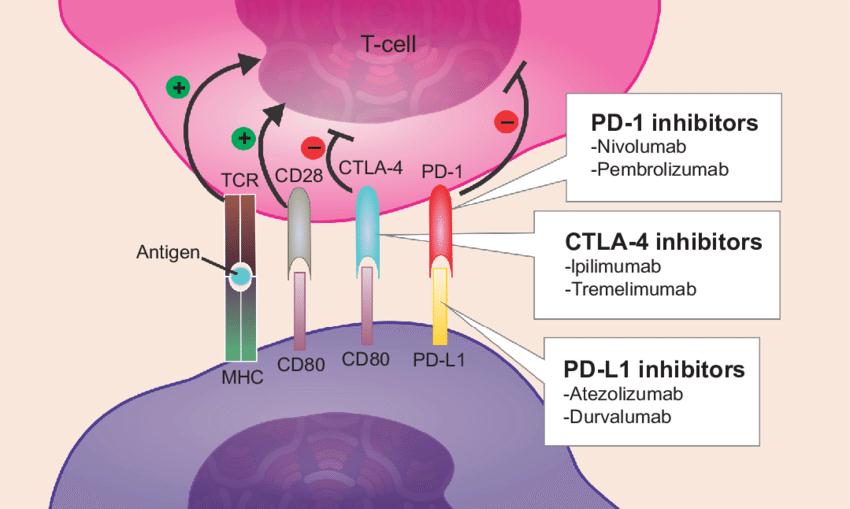An Optimization High-Throughput Platform for Immunomodulator Screening
Protein- and cell-based immunotherapeutic have revolutionized the treatment of cancer. Checkpoint inhibitors, as a breakthrough in cancer immunotherapy, kill cancer cells by reactivating immune cells (shown in Fig.1). Immune cells produce small protein molecules that inhibit themselves, and tumor cells use this mechanism to suppress immune cells and escape from the human immune system to survive. Immune checkpoint inhibitors can relieve this inhibitory effect, allowing immune cells to reactivate and destroy cancer cells. Therefore, if scientists want to enhance the ability of immune cells to kill cancer cells, they need to find a high-throughput screening platform that can screen thousands of drugs from large libraries of traditional small molecules. At present, drug development work in the field of cancer immunotherapy mainly focuses on extracellular regulatory molecules. However, most drug targets are located inside cells, which limits the development of drugs; small molecule immunomodulators with favorable pharmacological properties to reach intracellular targets remain to be developed. Therefore, finding the target inside the cell and exploring the broad chemical space, reliable methods to recapitulate the complex cancer immune microenvironment in a high-throughput format becomes essential.
 Fig.1 Mechanism of action of immune checkpoint inhibitors.
Fig.1 Mechanism of action of immune checkpoint inhibitors.
Recently, researchers have developed an optimized high-throughput immunomodulator screening platform that can help detect whether compounds enhance human immune cells' ability to suppress cancer cell growth. This platform uses a cocktail of human immune cells combined with cancer cells harboring known growth-driving mutations to screen for compounds with immunosuppressive effects. This optimization high-throughput screening platform has screened a lot of drugs from the library of 2,000 inhibitory compounds that enhance the ability of immune cells to defend against cancer cells while having little effect on cancer cells. This platform can be easily modified to detect the impact of other oncogenic mutations. It will also focus on a class of tumor antigen-specific immune cells, which has great potential in cancer therapy.
The Advantages of this platform include:
- Screening with high sensitivity
- High-throughput screening
- Screening results are more accurate and reliable
Potential Applications
- Discovery of small molecular immunomodulators
- Searching for compounds effective in treating cancer
- Development of immunity therapy
Profacgen is a state-of-the-art protein service provider. We provide custom protein services in the biological sciences, enabling access to the latest tools, techniques, and expertise with competitive pricing and rapid turnaround time. We serve a broad spectrum of industrial and academic clients committed to delivering high-quality data and customer services.
Please do not hesitate to contact us for more details if you are interested in this new method, and we will provide considerate service for you. At the same time, we also offer other RNA-protein interaction detected services; please move to our website for more details.
Reference
- de Mello RA, Veloso AF, Esrom Catarina P, Nadine S, Antoniou G. Potential role of immunotherapy in advanced non-small-cell lung cancer. Once Targets Ther. 2016 Dec 16;10:21-30. Doi: 10.2147/OTT.S90459.